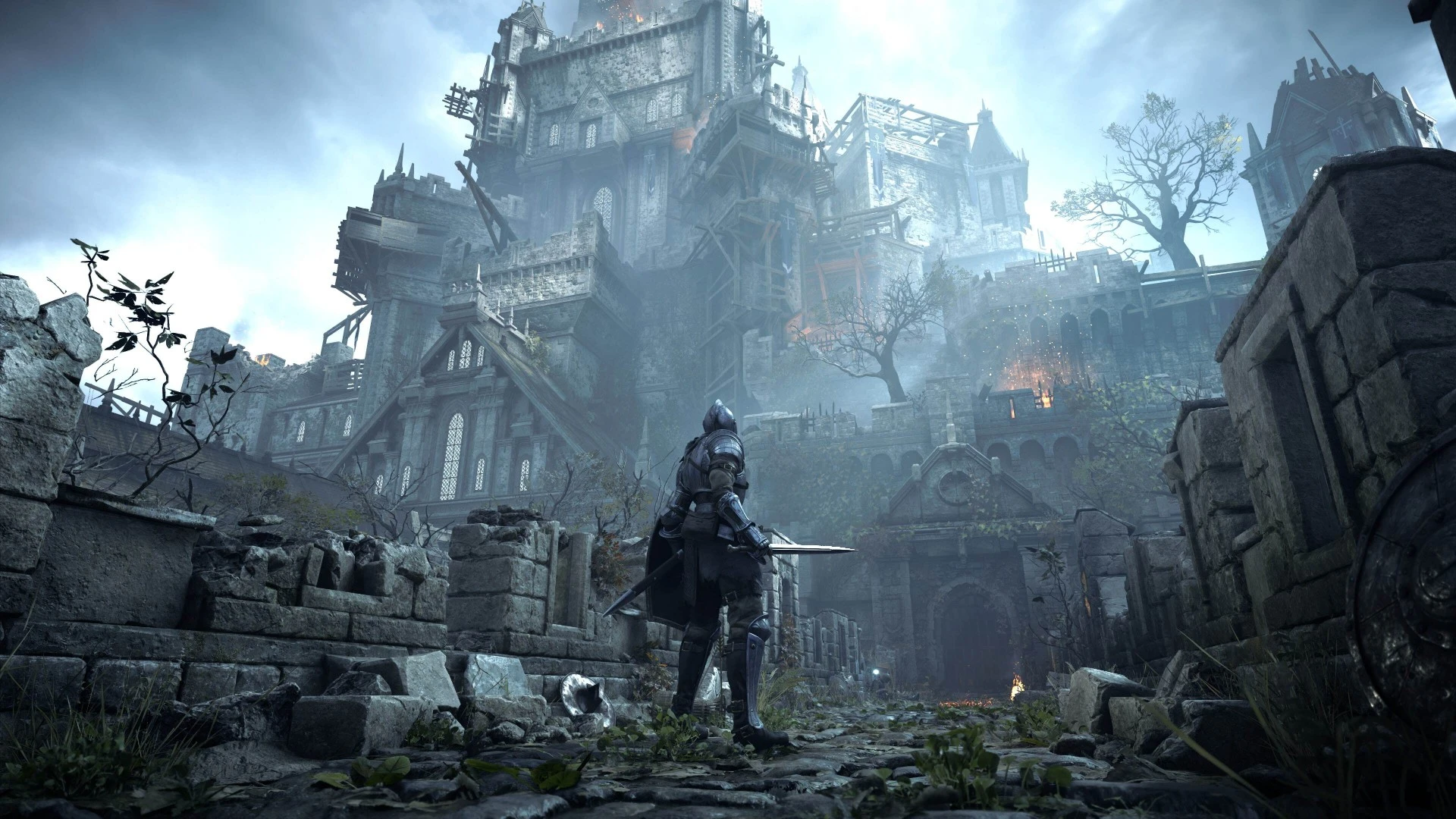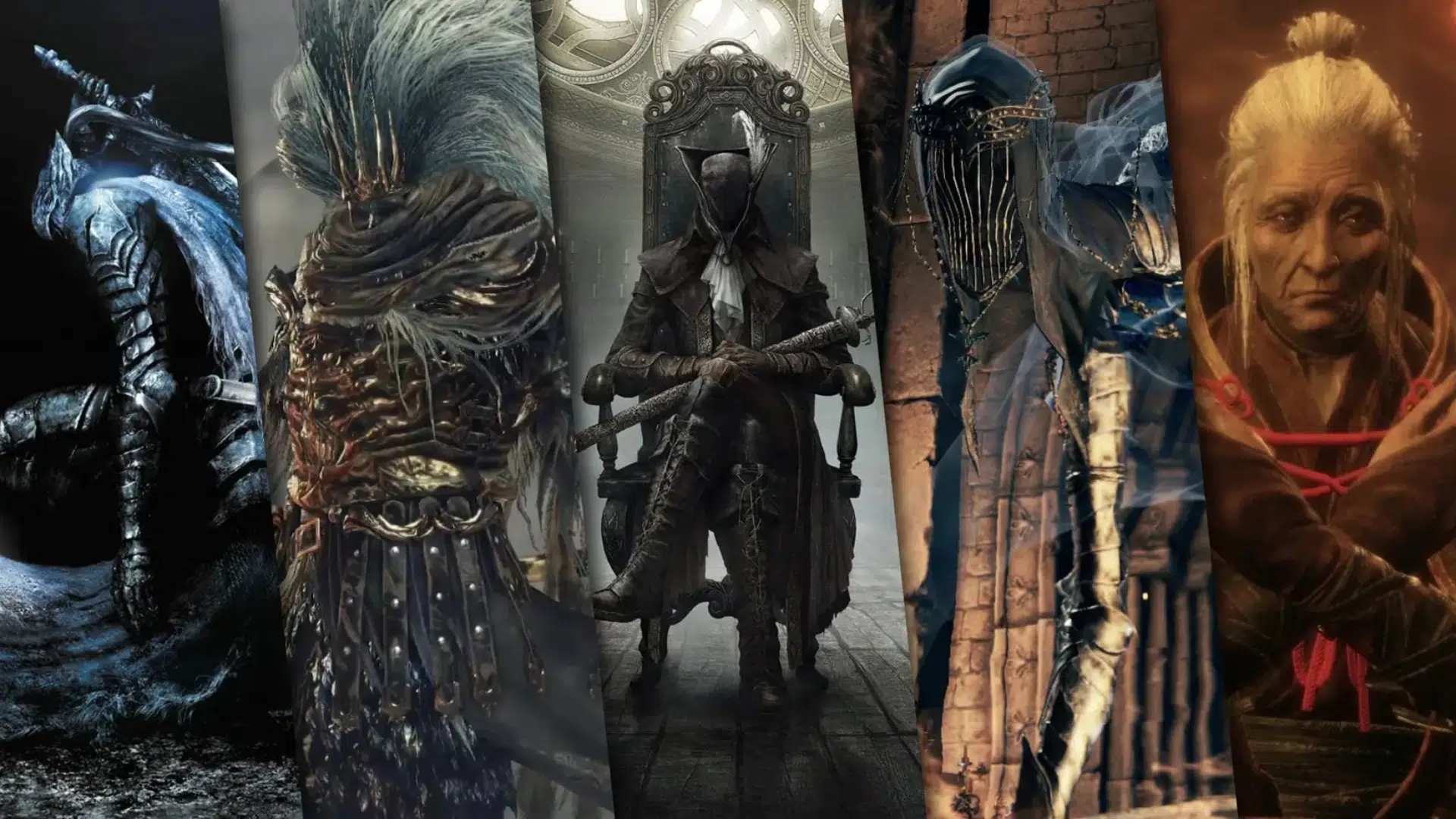It seems ever since the release of the original Demon’s Souls, players have maintained a perpetual hunger for more games that can offer up a similar experience. An experience that is most often boiled down to one recognizable feature. It’s heart-crushing difficulty. But there are lots of games that offer a challenge, though none of them seems to have captured the hearts and minds of gamers like the Soulsborne games — so much so, that it spawned off its own sub genre of action-RPGs.
It seems odd that a genre most well-known for it’s ability to beat you into submission would be steadily rising in demand since its conception with absolutely no signs of slowing down. In fact, in the last five years, two of the five game of the year winners, Sekiro and Elden Ring, have been in this genre. So why have these games taken up so much of the gaming spotlight? Are they overhyped by their communities or is there a legitimate reason you should rethink passing them up due to their difficult reputation? There are actually a number of excellent reasons as to why the popularity of Soulsborne games have exploded in the last decade.

First we need to define what classifies something as a Soulsborne game. Hidetaka Miyazaki is credited with creating the genre, as all of his titles have followed a similar style and structure to one another. The name Soulsborne comes from two of Miyazaki’s most recognizable games being pushed together. Demon’s Souls and Bloodborne ,to create, Soulsborne. A Soulsborne game has to have most of the same characteristics as its predecessors to be categorized as a Soulsborne. These include checkpoints, high difficulty, telegraphed move sets, complex lore, and environmental story telling to name a few.
- Related Reading: Demon Souls Comparison: Remake vs Original
These games, which are not just limited to Miyazaki’s games, are able to definitively set themselves apart from the action RPG genre in such a large way that an entirely new definition of them was created. Unlike the often joked about “Strand-type” game from Hideo Kojima, this new classification of game was actually needed and important to set these games apart from the rest. The gameplay and experiences you find in them are almost counter-intuitive to what is considered to be industry standard at this point. Here you will find a lack quest markers, no clear-cut tutorials or maps, hidden gameplay systems, frequent XP loss, and high enemy difficulty.
All of this can be overwhelming to anyone, especially if this is your first game in the genre. It has seen even some of the most seasoned gamers choosing to abandon it for the simple lack of familiarity and comparatively simple structure other games are able to offer. When the biggest defining feature of your game is how insanely hard it is, you are sure to scare off a few customers. The pay off for those who choose to stay and rise to the challenge, rarely regret their decision though.

The difficulty of these games are without a doubt the biggest barrier to entry for most. A quick search online will show a flood of posts from new users venting their frustration and inability to tackle the challenges these games present. Soulsborne games differ so much from traditional games where players are forced to throw out what they think they know and adapt in an entirely new way. It truly becomes a sink or swim situation where you have to take the time to learn the game and respect its systems in order to get the most out of it.
This however, is where the “secret sauce” of Soulsborne games actually lie. The seemingly insurmountable challenges these games present offer the highest degree of reward to the players that take the time to learn them. Parrying in Sekiro, attacking to regain health in Bloodborne, and timing dodges in Dark Souls are all vital skills that often take entire playthroughs to truly understand. Many people who give up on these games do so before the combat has the moment of “clicking” for them where the pieces fall into place and they can see the expertly designed rhythm behind the flow of combat offered in these titles.
The fact that succeeding has to be earned by the player by respecting the gameplay systems at hand means that every step in progression and victory feels like it was rightfully deserved. These games can be punishing, but only if you choose to brute force your way through them rather than taking the time to learn and use the tools given to you. It is a feeling that is unmatched when you beat your first boss, or finally make it past a difficult area because you took the time to learn the patterns, timing, and rhythm behind the combat. One of the best parts about these games though, is how many people in the community are willing to help you get there.

Soulsborne games can often be intentionally obtuse in their design. Hidden pathways, overpowered enemies, and a general sense of “Where the hell do I go?” are all apart of the purposeful DNA presented in these games. If you’ve played anything in the genre you know the feeling. The good news is that the Soulsborne community understands this and is, in my opinion, one of the most accepting and helpful communities you will find in all of gaming. They have been there, and they understand the struggle. While you will occasionally get some level of hazing telling you to “git gud” there is always someone who is willing to help you feel the way they did the first time they beat the game by happily offering what advice they can.
There is an unfathomable amount of guides, build strategies, and walkthroughs all designed to help new and veteran players alike. The community wants other people to play these games they love so much and make sure to help you with whatever knowledge they have to ensure you succeed. Players mistake using these tools for cheating and believe they will dilute the experience but it is quite literally the opposite.
These games do have a steep learning curve, and many things are either poorly explained to the player or not at all. Using some of these online tools helps to alleviate much of the stress for players by explaining anything you might not understand. Other players have done the hard work of figuring out the best weapons to use, or the optimal path to take so that you don’t have to. Doing a playthrough with the wiki open beside you or alongside a YouTube walkthrough is encouraged within the community because it allows you to get the most out of the game. Instead of wasting time wandering around or dying over and over somewhere you really shouldn’t be yet you can focus on actually making progress and feeling good about it too.

All Soulsborne games are built around beating the odds. In majority of games, you are the chosen one or have amazing abilities and skills allowing you to tackle any challenge thrown at you. Here it is the opposite, where you often feel like a lowly NPC up against seemingly insurmountable foes fighting beings with godlike powers with nothing but a sword and a heat filled with determination. This makes every bit of progress you make feel earned. Each and every checkpoint you get to becomes a beacon that highlights the progress you have made in mastering the game and gotten that much closer to “gitting gud”.
The loss of experience after dying can be heart-breaking. The loss of progress after dying can be heart-breaking. Having to replay the same section because you died just as you saw the next checkpoint is a terrible feeling. It is also genius. This is what makes these games so rewarding by offering up a real risk to every death and enemy you face. You do not run through the world expecting to demolish everything in your path. You have to make hard decisions about who to fight, how to fight, and know when to run. Every battle feels like a struggle between life and death. This trial-and-error progression can be tedious for some, but grounds you in these grueling horror-filled worlds where overcoming the overwhelming odds truly feels impossible, making every victory feel that much sweeter.
These games are worth exploring because they have wonderful secrets and mysteries within them too. Even though the dialogue is light compared to traditional RPG’s, the world-building you get from them is extraordinary and fills in the question marks of the vast desolate world you inhabit. The locales and places you visit have some of the most beautiful set-pieces and level design video games have to offer. Each enemy feels distinct from another and inhabits the world they live in with a purposeful design that contributes to the lore and environmental storytelling of the world as a whole.

Understandably, these games won’t be for everyone, and that is okay. Some people do not have the want or need to learn a game so thoroughly just to be able to enjoy it. What these games present to those that do though, is an opportunity to experience something that is vastly different from the norm. It offers a fantastically unique gameplay loop that is defined by it’s difficult nature. While these games have their challenges they can often be beaten by anyone given they have the willingness to persevere and the desire to learn and adapt.
Beating a Soulsborne game has become a badge of honor in the gaming community. One that comes with bragging rights and the ability to haze others gong through the games as they were once in their shoes. Beating them grants access to an exclusive club of others in the gaming world who have been able to rise to the infamous challenge. Finding common ground with others in the community sharing strategies to cheese bosses or create OP builds is all apart of the fun. The game unfairly beats you, so you do it right back.
It isn’t often that games come along with the ability to create their own brand-new genre. Taking the concepts we know about games and turning them on their heads creates a different type of challenge that not many games care to offer anymore. Too many games share so much of the same DNA, it should be celebrated to have something that proudly stands out from the crowd, refusing to adhere to the norms in the industry. The Soulsborne games continued success proves that players appreciate the deliberate design of these games despite their demanding nature. It offers them something rare, challenging, and most importantly, tremendously rewarding for seeing it through.
Opinions expressed here are solely of the author’s and does not represent MP1st and its staff

The biggest illusion of these games to the public is that these games have a huge difficulty barrier. It’s more that people approach these games incorrectly and the rest is just timing and pattern recognition